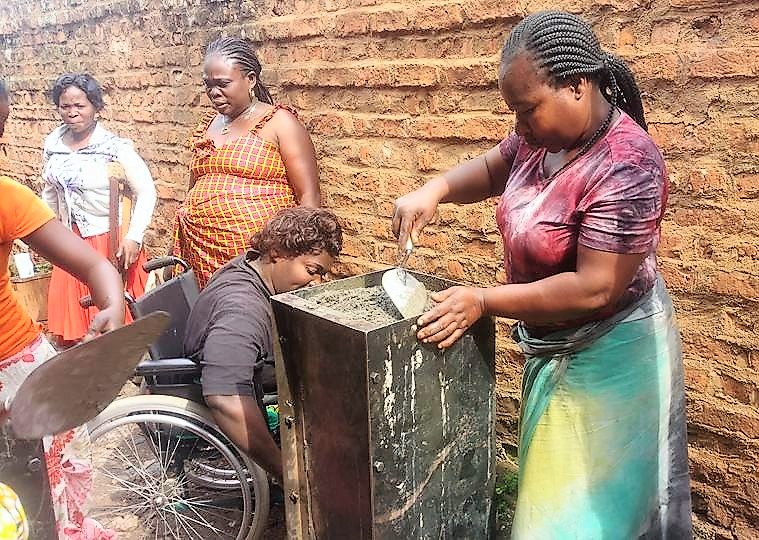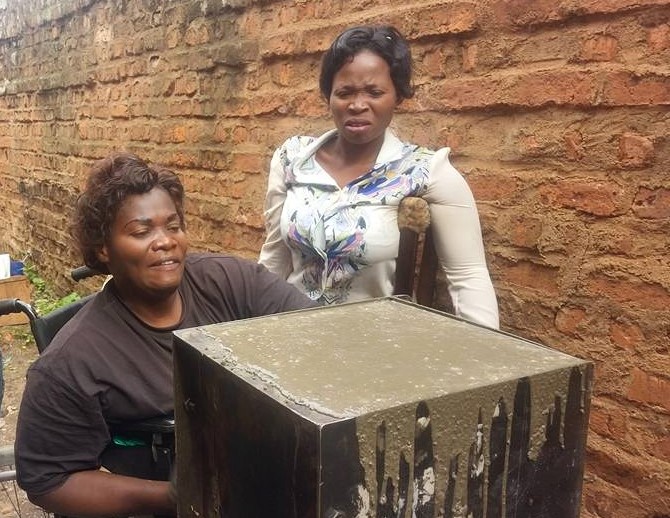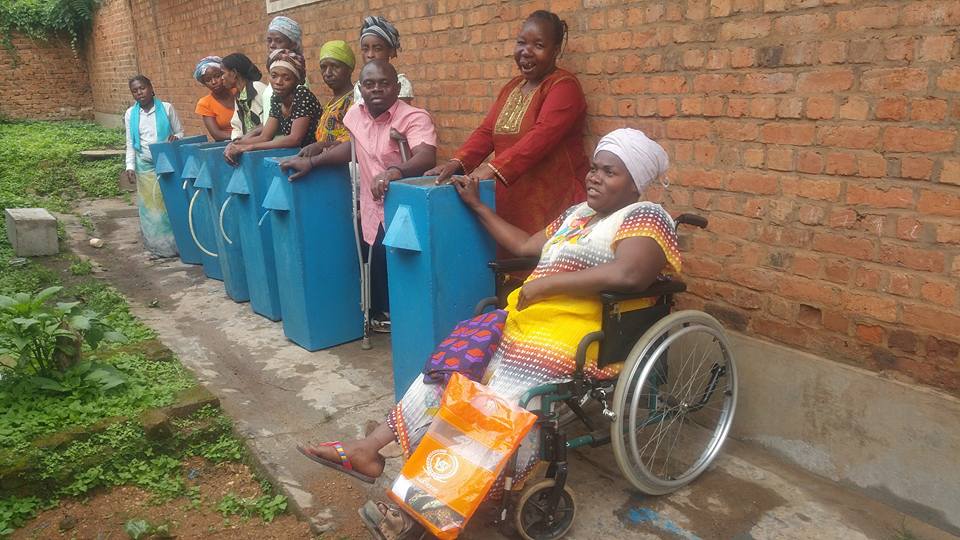Hope for Africa – Bukavu, Congo
Location: Bukavu, Congo
Problem Addressed:
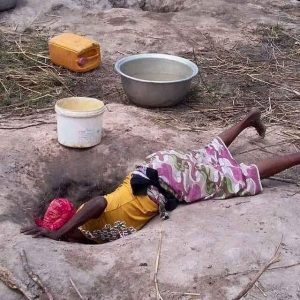 Bukavu is the capital of South Kivu Province, in eastern Congo-DRC. It has a population of 885,000, with hundreds of thousands more in surrounding areas, and not counting several hundred thousand refugees, on the shores of Lake Kivu It has been beset by war and violence since 1996. It is sometimes referred to as the “wartime-rape capital of the world.” The area is extremely hilly, with neighborhoods within the city often isolated from each other.
Bukavu is the capital of South Kivu Province, in eastern Congo-DRC. It has a population of 885,000, with hundreds of thousands more in surrounding areas, and not counting several hundred thousand refugees, on the shores of Lake Kivu It has been beset by war and violence since 1996. It is sometimes referred to as the “wartime-rape capital of the world.” The area is extremely hilly, with neighborhoods within the city often isolated from each other.
There is virtually no clean water. The national water company Regideso’s plant in Bukavu was built in 1956, when the population was only a quarter of its current size, and rehabbed once, in 1990. The plant is rundown, barely operational, does not reach large portions of the population, and there are no funds and no plan to repair it anytime soon. Epidemics of typhoid and cholera regularly ravage the city; amoebic and bacterial dysentery are endemic. There is a large portion of the population that is HIV-positive (often the victims of wartime rape), many of them receiving anti-retroviral drugs, but no clean water to take them with.
In certain areas that do not have access to contaminated rivers and the lake, people dig extremely shallow wells on their plots called “bizolas” (picture to the right) where women lie prone, and scoop out water for their families. As there are no sanitary facilities, the water is contaminated with disease-causing waterborne micro-organisms.
Project Description:
Friendly Water for the World’s Congo-DRC Country Representative runs an organization called Hope for Africa – Great Lakes. Its main function is to bring together community-based organizations, relevant local government agencies, and, occasionally, larger NGOs to collaborate on solving water-related challenges.
For this project, 10 members of five organizations based in different parts of Bukavu will come together for training in fabrication, distribution, installation, and maintenance of BioSand Water Filters, as well as in teaching community sanitation and hygiene. Each group will be equipped with two steel molds, toolkits, and an enhanced amount of starter ma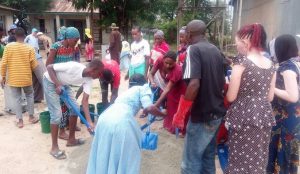 terials so that each person trained will be able to purchase a Filter for the cost of materials, plus their own labor. This will also assist in marketing, as participants will be able to offer personal testimony as to the Filter’s effectiveness. Prior to receiving a Filter, each recipient/customer will fill out an epidemiological questionnaire, which has been translated into Kiswahili, and will fill it again at the three/six-month follow-up. Hope for Africa is responsible for data collection.
terials so that each person trained will be able to purchase a Filter for the cost of materials, plus their own labor. This will also assist in marketing, as participants will be able to offer personal testimony as to the Filter’s effectiveness. Prior to receiving a Filter, each recipient/customer will fill out an epidemiological questionnaire, which has been translated into Kiswahili, and will fill it again at the three/six-month follow-up. Hope for Africa is responsible for data collection.
Each group will serve a different subdistrict. Each group is expected to be self-sufficient in the first 3-6 months, as demand for clean water is very high in an area where it is simply otherwise unavailable.
A management committee will be established to which each of the community-based organizations will report. The committee will aid in mobilizing and educating people about waterborne illnesses and the need for clean water, and to help market Filters. In the future, they may assist with the training of new groups.
The management committee will also include representatives of the South Kivu Provincial Health and Energy Division, and the Provincial Action Committee for Water and Sanitation, who will help by providing epidemiological background information and monitoring. In addition, the international monitor of the WASH cluster in Bukavu for UNICEF will also monitor progress through interagency meetings.
One group – the Association of Handicapped Women – already has two steel molds and has built some Filters for their members. To be successful, they need assistance in the transportation of Filters and in marketing, which they will receive through this program.
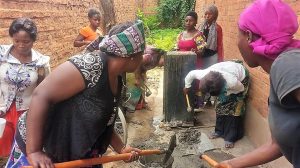
Project Impact:
The project aims at a coordinated approach to the use of BioSand Water Filters in addressing the need for clean water and the reduction of waterborne illnesses in Bukavu. In addition, the potential for the development of new groups through this approach is much greater than if a single group was working in such a large community.
Initially, each of the trainees will be able to purchase a single filter at cost, providing clean water for approximately 500 people. It is reasonable to assume that each group will be able to produce and sell 50 Filters a month, or 250 filters combined. Thus 1,500 were installed over six months, providing clean water to some 15,000 people. In addition, Filters will be made available to schools, orphanages, and health care facilities. Over the course of two years, clean water will now be available to some 60,000 people.
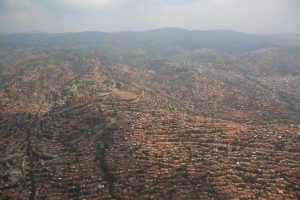 It is hoped that this model will also lead to increased collaboration among community-based organizations, government entities, and NGOs, hence multiplying the effectiveness of their common work.
It is hoped that this model will also lead to increased collaboration among community-based organizations, government entities, and NGOs, hence multiplying the effectiveness of their common work.
Persons Directing:
Eliphaz Bashilwango, 35, has been Friendly Water for the World’s Congo-DRC Country Representative for the past four years, and he has managed a number of Water Charity’s filter construction training. He has more than a decade of experience in the water and sanitation sectors, having worked for the Tear Fund, Mennonite Central Committee, and the World Bank on rainwater catchment, gravity-fed distribution systems, community sanitation, and BioSand Water Filters, especially with Batwa/Pygmy groups. He has trained groups in war-torn areas of the Congo-DRC and Burundi (even in areas where active military activity is taking place.) He is a very courageous man. He also operates an orphanage for war orphans near Uvira.
The Association of Handicapped Women is organized by our friend Aristote. After being trained in Beni, Congo-DRC, and assisting in leading a BioSand Filter fabrication training in Minova (both projects can be found here on our website), our friend and colleague Aristote Masimango Bash has returned to his home in Bukavu to establish a Filter workshop with the Association of Handicapped Women, or, to be more exact, AEPIFHA – “The Association for the Integral Promotion of Women Living with Handicaps”
This is a group of 25 women (and one man!) composed mainly of those living with physical disabilities. There are others who, according to the group, “carry internal wounds of sexual violence or who are traumatized because of HIV/AIDS.” They were founded in 2001, and Aristote’s adopted mother is among them.
Aristote was a little reluctant at the beginning. He wrote:
“Enable the disabled, translate disability into ability, capacity, capability, turning, a winning opportunity indeed a reality. Before implementing the BioSand Filter Program with disabled women I could fear the weight of the material. How heavy is a mold! What strength it takes to make concrete! But these women have at all costs said disability is not inability and we are now making BioSand Filters! Many thanks for Water Charity & Friendly Water for the World! Together we will achieve great things.”
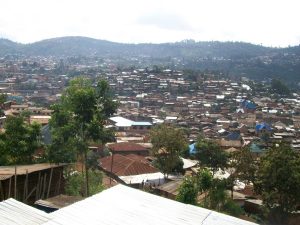 This will be a challenging project. On the one hand, the need for clean water in Bukavu is massive. Waterborne epidemics are virtually an everyday occurrence, and there is no other clean water to be had. On the other hand, Bukavu is built on a series of hills, and even collecting dirty water is a chore, especially for disabled women. The women will have to decide whether they wish to manufacture and sell Filters (with the challenging problem of accessing building materials and finding transportation) or selling clean water (which would require regular access to contaminated water to clean.)
This will be a challenging project. On the one hand, the need for clean water in Bukavu is massive. Waterborne epidemics are virtually an everyday occurrence, and there is no other clean water to be had. On the other hand, Bukavu is built on a series of hills, and even collecting dirty water is a chore, especially for disabled women. The women will have to decide whether they wish to manufacture and sell Filters (with the challenging problem of accessing building materials and finding transportation) or selling clean water (which would require regular access to contaminated water to clean.)
Aristote, though, is hopeful. The spirit of solidarity that has carried the group this far is strong, and he believes there is no obstacle they can’t overcome.
Monitoring:
Each group will have a trained monitor, who will go into homes to ensure BioSand Filters are installed properly and are being used correctly. Overall monitoring will be the responsibility of the management group, which will help groups adjust their business plans as needed. The epidemiological questionnaire will be used for those receiving Filters, and at the three/six-month followup.
| Bukavu, Congo-DRC – Hope for Africa Project | |||
| Items | Qty. | Cost per | Total |
| Steel Molds | 8 | $600 | $4,800 |
| Toolkits | 5 | $450 | $2,250 |
| Starter Material | 5 | $500 | $2,500 |
| Transportation of Materials | 1 | $250 | $250 |
| Manuals | 50 | $5 | $250 |
| Graduation Certificates | 50 | $3 | $150 |
| Pens, notebooks, etc. | 50 | $1 | $50 |
| Trainers honoraria | 2 | $300 | $600 |
| Trainers accommodation | 2 | $210 | $420 |
| Trainers meals | 2 | $90 | $180 |
| Trainers transport | 2 | $75 | $150 |
| Followup/Evaluation visits | 3 | $150 | $450 |
| Transport | 3 | $50 | $150 |
| Administration | $600 | ||
| Provided by the groups: | |||
| Meals/tea for Trainees | $1,875 | ||
| Transport of Trainees | $625 | ||
Although the funds for this project have been contributed by an anonymous donor, your donation using this Donate button will ensure that we have funds available for our next project in this country.
